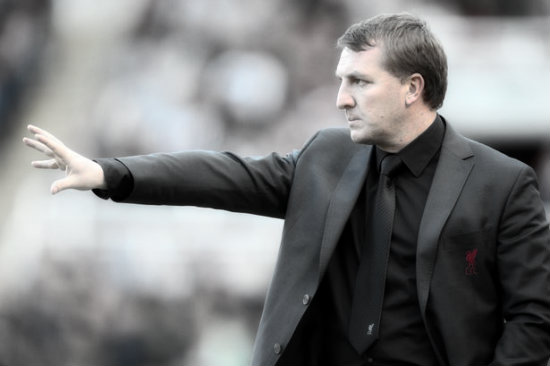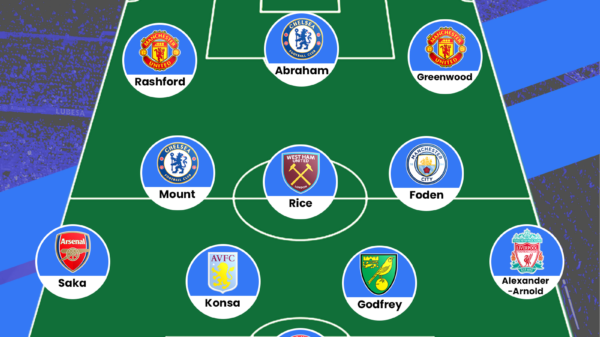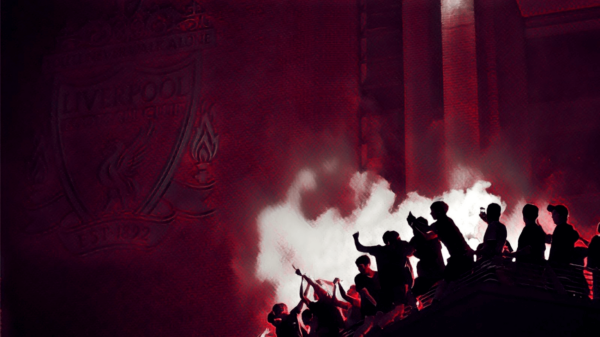
Things could have been a lot different for Liverpool Football Club, if DIC’s (Dubai International Capital) bid to takeover the club had gone through in 2006. Middle-Eastern billions pumped into the club, taking it from a challenging side to a winning one. Trophies, players, revenue — it would have been back to the golden days for the red half of Merseyside. The club, however, looked to the West; and blimey how that turned out!
7 years later, Western owners remain, while the club has fallen off it’s comparatively mediocre perch; a downward spiral from a Champions League winning campaign has ensued. The overly used football cliche ‘transition’ continues to be associated with the club. The Middle Eastern regret remains, but the Western adjustment has been much more than a mere change. Both sets of Americans were shrewd businessmen, both have come to Merseyside to make a profit, both (probably) have the intention of selling when a significant return on investment is possible. The approaches though, are clearly different.
Despite the failure of the club over the last few seasons, it still manages to attract a global fan base and a packed stadium, season after the season. Tickets for football matches are being sold at an alarming rate, attracting global fans, and Liverpool have been at the centre of this new influx of fans. The likes of Steven Gerrard and Jamie Carragher have been instrumental in keeping the club from drowning into complete mid-table mediocrity. Their experience and intelligence on the pitch is essential, but the approach being taken by FSG is blooding the youth, instilling an identity and ensuring a bright future rather than a seemingly successful present.
Coutinho, Henderson, Alberto all represent this new wave of talent being infused into the club; the bid to steer the club back onto the right path is one which requires immense patience. Champions League football, let alone a Premier League title, is still a couple of season’s away. While that might get fans impatient, the faithful Reds have pretty much become accustomed to waiting. The theory of promoting youngsters is appealing, nothing excites fans more than putting a side out with an average age of 23-24 (as the club did on a number of occasions last season). But one has to ask the question, is this youthful approach really an intended installation, or a necessity due to the clubs increasing failure to attract star names and transfer targets?
It’s intriguing to note that Liverpool will most likely have just one regular first-team player on the wrong side of 30 in the 2013-14 campaign, with the core of the attack largely below 25. It’s an approach adopted by some of the best side’s in the history of football, one which not only ensured titles, but more importantly— consistency. Becoming self-sustainable to a point where throwing millions every window isn’t a necessity is every club’s dream. Liverpool have made some errors in judgement in the past when it comes to transfers, but despite the signings so far in 2013 being that of fairly unknown footballers, the potential they possess is exciting. Fans are bound to be eager for the new season, Tickets for FC Liverpool games are bound to throw up large crowds.
The harsh reality is that Liverpool, as a result of their drop, don’t have the purchasing power and ability to attract big names that they once did. Settling for a youthful exuberance may not be the worst thing to be thrown upon the club. Club’s are increasingly being based around a financial model, with value for money, and ensuring a re-sale value growning in importance. With this approach, Liverpool have to ensure a quality coach (rather than a manager) is needed. Rodgers replacing Dalglish makes complete sense in that regard. Liverpool aren’t going to sign the best players, they instead need to produce them. This marks a change in the status of the club, one which they wouldn’t wish to remain at for long. Liverpool may develop into a football factory for the bigger clubs to exploit. The better scenario would be a wave of success with the youngsters at the helm.
“This club needs to fight to enter the Champions League and, when it doesn’t happen, it damages the morale of any player”, it’s likely that every top quality player is thinking how Luis Suarez is.
The Uruguayan is arguably one of the best players in World football, but Liverpool just don’t possess the resources to keep a hold of him, neither do they have the same desire as their No. 7. Can a player of Suarez’s quality stick around the club as they aim to return to the Champions League, without any guarantee of doing so and neither a realistic shot at silverware? Luis Suarez is currently in his prime, fail to move to a top club now and he may miss his chance of securing some winners’ medals. And while selling your greatest asset could be a suicidal decision, it’s a decision the club needs to make, and if conducted correctly it can work out in their favour. From the owners point of view, Liverpool may actually miss out on an appealing project to sell, while Suarez may well be playing in front of packed stadiums for one of the many top clubs among Europe’s elite. This, however, cannot be used as an excuse for potential failure. What Liverpool need to do is, is to continue this accepted adaptation and continue to invest in the youth. The Liverpool project(s) over the last few seasons has failed, the current crop of players and management are at the club to ensure growth, sustenance and consistency in the years to come.
The £20 million spent in January represents this smart piece of business from the club. This, this is the actual Moneyball approach. Something which Henry fell in love with and would like to continue to foster in the World of football. It’s the business model for football that would arouse the interest of any non-sugar daddy owner. Missing out on Mkhitaryan only further emphasises this need for change. It requires patience from the fanbase, and trust in the management. Star names aren’t going to come to Anfield anymore, but potential ones are going to be bred. With financial stability thus reiterated, Liverpool fans should be further thrilled with the situation based on what went down under Hicks & Gillet. But will the fans accept this situation? Would they be smart enough to realise the necessity and importance of financial stability? In an era where instant success seems like an easy situation to make, will Liverpool fans settle for a stable & less exciting model? It’s easy to be in favour of it, but were a rich billionaire to gain interest, would the mentality remain unaltered?
So while this ‘buy youth’ policy may have been forced upon the club, and while selling your best players may seem as a backward step; an optimist would tell you that this could possibly be a blessing in disguise. Fans will have to keep their faith and hope that in a few years time not only will their faith be rewarded but also Liverpool’s long term approach be vindicated.


























































